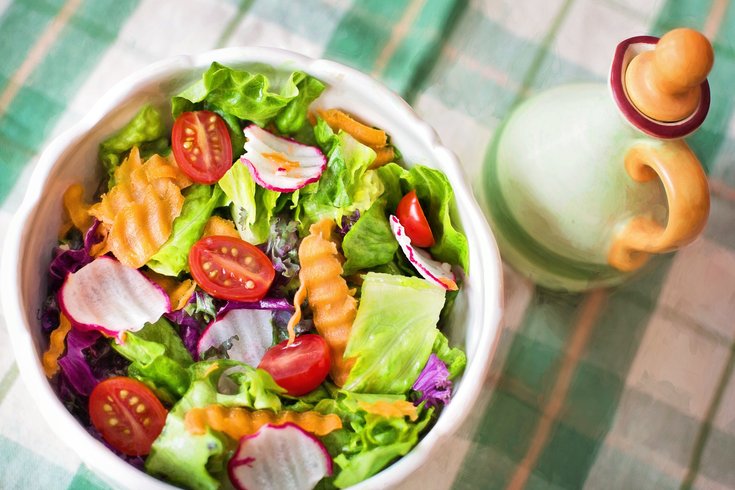 Pixabay/Pexels.com
Pixabay/Pexels.com
As more people begin embracing healthy lifestyles, diets consisting of “ whole foods” and plants have become increasingly popular. Widely observed events like “Meatless Monday” are evidence of this growing trend. There is a difference, however, between what is considered a plant-based diet focused on whole foods and a traditional vegan diet.
What to know about going vegan
People who commit themselves to a vegan diet do not eat any animal-based products whatsoever. This means that vegans abstain from eating foods like meat (including seafood and shellfish), dairy, and eggs, as well as products derived from animals, like honey and gelatin.
Vegans generally see their preferences as a lifestyle choice rather than simply a diet, and this is the core difference between veganism and a plant-based regimen. For example, vegans not only refrain from consuming animal products – they also avoid things like leather, beeswax, and any product that has been tested on animals. Veganism is a philosophy, or a way of living, rooted in a general desire to exclude all forms of cruelty to and exploitation of animals for any number of things, from food to clothing to skincare items.
Just because someone maintains a vegan diet, however, doesn’t mean they are practicing healthy eating habits. Many highly processed foods that contain lots of sugar and carbohydrates are still technically vegan, yet they don’t contain the raw plant power typically associated with a vegan lifestyle.
The ins and outs of a plant-based diet
A diet based solely on plants is similar to that of a vegan diet in that both exclude animal products altogether. In addition to cutting out animal foods and byproducts, those who choose a plant-based diet also tend to avoid processed and overly refined fare for nutritional and environmental reasons. Fruits, vegetables, legumes, nuts, and seeds are all naturally occurring substances, and are therefore fair game for anyone who subscribes to a plant-based routine.
Why the difference matters
A person’s diet is often deeply important to who they are and what they stand for. Because it can be such a personal matter, your diet can even be strongly tied to your identity. For most vegans, it’s not a matter of not being able to eat animal products. Rather, it’s a matter of making the conscious choice not to do so. Regardless of the various reasons behind someone’s choice to be vegan (or vegetarian), it inevitably becomes part of their identity.
Setting aside any personal reasons for going vegan or switching to a plant-based diet, there are also a slew of health benefits, as well. Recent studies show that swapping animal protein for plant protein can reduce your chances of heart-related illness, including coronary heart disease, as well as many risk factors that lead to diabetes.
Whether you opt for a vegan lifestyle for humane or environmental reasons, or if you want to give a plant-based diet a try when setting new health goals, maintaining a healthy balance in what you eat is the key to success. If you’re thinking about going vegan, or even if you’re simply trying to integrate more fruits and vegetables into your daily meals, it’s important to make sure you continue to nourish your body and get the vitamins and minerals you need to feel your best.
For additional guidance on adopting a vegan or planted based diet, consider nutritional counseling to help you make a healthy transition. If you’re an Independence Blue Cross (IBX) member, you can consult with a registered dietitian up to six times each year at no cost. Search for a participating registered dietitian using IBX’s online provider directory.
This content is not intended to be a substitute for professional medical advice, diagnosis, or treatment. The information on this web site is for general information purposes only. Always seek the advice of your physician or health care provider on any matters relating to your health.
No comments:
Post a Comment